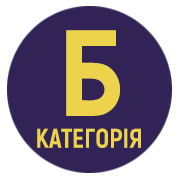ORGANIZATIONAL AND PEDAGOGICAL CONDITIONS FOR THE IMPLEMENTATION OF INNOVATIVE TEACHING METHODS IN THE PROFESSIONAL TRAINING OF FUTURE LOGISTICS OFFICERS
DOI:
https://doi.org/10.32782/ped-uzhnu/2025-9-14Abstract
The article is devoted to one of the current problems of high-quality training of future logistics officers of the Armed Forces of Ukraine – the definition and justification of organizational and pedagogical conditions for the implementation of innovative teaching methods in the professional training of future logistics officers during their studies at a higher military educational institution. Based on the analysis of literary sources and our own experience, a set of organizational and pedagogical conditions was determined, which were the basis of the author’s methodology for introducing innovative teaching methods into the professional training of future logistics officers in military universities, namely: organization of professional training of future logistics officers based on the principles, conceptual provisions and using methods of pedagogical (educational) logistics; conducting an analysis of innovative teaching methods that are appropriate for implementation in the professional training of future logistics officers in the current period of martial law in our country; activating the extracurricular work of future logistics officers and organizing it using methods such as tutoring, mentoring, coaching, in particular in cadet scientific circles; organization of events for teachers to exchange experience in implementing innovative teaching methods in the professional training of future logistics officers. Innovative training methods that are appropriate for implementation in the professional training of future logistics officers during their studies at military universities in the current period of martial law in our country are analyzed. The principles and conceptual provisions of pedagogical (educational) logistics, as well as logistics management systems (“those that push out, push” or “push systems” and “those that pull” or “pull systems”) and innovative teaching methods corresponding to these systems are highlighted. New methods of activating extracurricular work of cadets of higher educational institutions are proposed.
References
Bambrick-Santoyo P., Lemov D. Leverage Leadership 2.0. Wiley, 2018. 432 р.
Beier Fr. Logistyka / Fr. Beier, Kr. Rutkowski. Warszawa, SGH, 1993. 360 s.
Bloom B .S. All our children learning. N.Y., 1981. 262 p.
Bowersox D. J., Closs D. J. Logistical Management. The Integrated Supply Chain Progress. The McGRAWHILL Companies, inc. New York, 1996. P. 12–23.
Coe R. Why aren’t we doing coaching’ (even though everyone else seems to be)? Evidence Based Education. 2023. URL: https://evidencebased.education/ why-arent-we-doinginstructional-coaching-even-thougheveryone-else-seems-to-be/
Knight J. Why teacher autonomy is central to coaching success. Educational leadership. 2019. 77(3). URL: https://www.ascd.org/el/articles/why-teacher-autonomy-is-central-to-coachingsuccess
Newell A. Coaching for Teachers: What school leaders need to consider. URL: https://blog.irisconnect.com/uk/coaching-for-teachers.
Skinner B. F. Reflections on a decade of teaching machines. Current research on instruction. Englewood Cliffs. 1969. P. 22–32.
Dr. Uche J. Obidiegwu J. O. Ojo Ajibare. Blooms mastery learning theory: implications on adult education. 2007. URL: https://dl.icdst.org/pdfs/files1/ 3b3c79918ad75a1b2978742716506b44.pdf
Toit А., Reissner S. Experiences of Coaching in Team Learning. International Journal of Mentoring and Coaching in Education. 2012. 1(3). P. 177–190. URL: https://doi.org/10.1108/20466851211279448
Volovnyk V., Dedlovskaya М. & Nechayeva М. Innovations in management education: Logistic approach to the assessment of key competences of students in higher educational institutions. Actual problems of public administration: Studies digest of Оdessa regional institute for public administration (ISSN: 1993-8330), Issue 2. 2017. рр. 49–53.
Артемов В. Новітні інструменти позааудиторної діяльності вищого військового навчального закладу. Військова освіта: Зб. наук. праць Національного університету оборони України імені Івана Черняховського, м. Київ. 2024. № 2 (50). С. 8–14.
Артемов В. Ю., Гнатюк Т. І. Досвід організації науково-дослідного курсантського гуртка в умовах правового режиму воєнного стану. Перспективи та інновації науки. Серія «Педагогіка». № 11 (45). 2024. С. 132–140.
Воловник В. Є., Лебедєв Б. В., Маслій О. М. Організаційно-педагогічні умови формування інформаційно-освітнього простору при підготовці майбутніх інженерно-військових фахівців. Інноваційна педагогіка: зб. наук. праць Причорноморського науково-дослідного інституту економіки та інновацій. 2022. Вип. 54. Т. 1. С. 106–110.
Горяїнов О. М. Логістика: конспект лекцій. Харків: ХНАМГ, 2009. 105 с.
Дерев’янчук А., Наливайко А., Чопа Д. Напрями розвитку і впровадження новітніх технологій викладання військово-технічних дисциплін у підготовку фахівців ракетних військ та артилерії. Військова освіта: Зб. наук. праць Національного університету оборони України імені Івана Черняховського, м. Київ. 2024. № 2 (50). С. 30–67.
Кива В., Баранова Т., Лучний В. Проблеми впровадження дистанційного навчання у вищому навчальному закладі. Військова освіта: Зб. наук. праць Національного університету оборони України імені Івана Черняховського, м. Київ.. 2023. № 2 (48). С. 97–107.
Концепція трансформації системи військової освіти в Україні, затверджена Постановою Кабінету Міністрів України від 15.12.1997 № 1410 «Про створення єдиної системи військової освіти» (в редакції постанови Кабінету Міністрів України від 30 грудня 2022 р. № 1490).
Освіта України в умовах воєнного стану. Інноваційна та проєктна діяльність: Науково-методичний збірник / за загальною ред. С. М. Шкарлета. Київ-Чернівці «Букрек». 2022. 140 с.
Педагогічна (освітня) логістика. URL: http://logistics.cdtu.edu.ua/ index.php/2013-05-13-17-19-45/2013-05-13-22-35-18/2013-05-13-22-44-42
Подтергера Є. М. Організаційно-педагогічні умови військової підготовки студентів цивільних вищих навчальних закладів: дис... канд. пед. наук: 13.00.04 / ПДПУ імені К. Д. Ушинського. Одеса, 2007. 191 с.
Пометун О. Активні й інтерактивні методи навчання: до питання про диференціацію понять. Шлях освіти. К.: Вид. «Педагогічна преса». 2004. № 3. С. 10–15.
Пономарьова Ю. В. Логістика : навч. посіб. К.: Центр навч. літ. 2005. 328 с.
Проблеми впровадження дистанційного навчання в освітньому процесі вищих військових навчальних закладів та можливі шляхи їх вирішення: зб. матеріалів III Міжнар. наук.-практ. конф. / Національний університет оборони України імені Івана Черняховського, м. Київ. 2020. 121 с.








